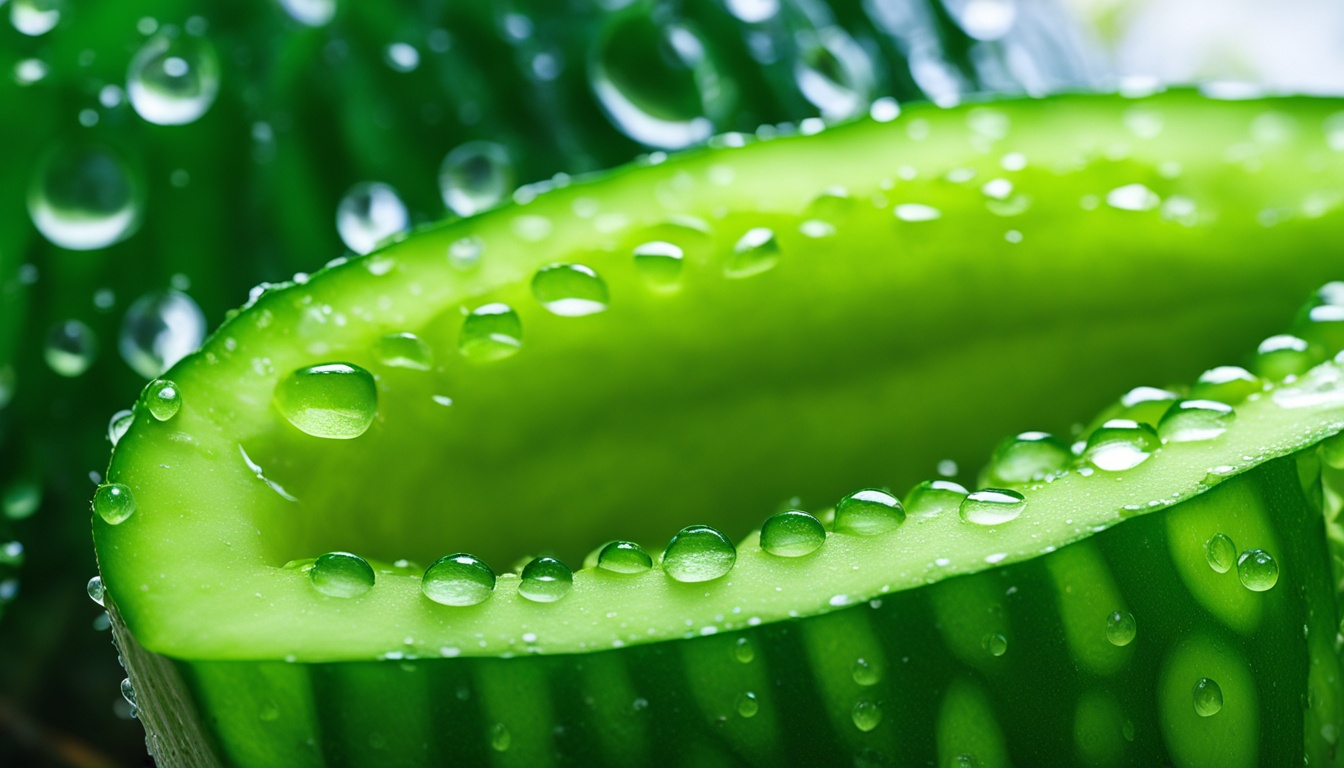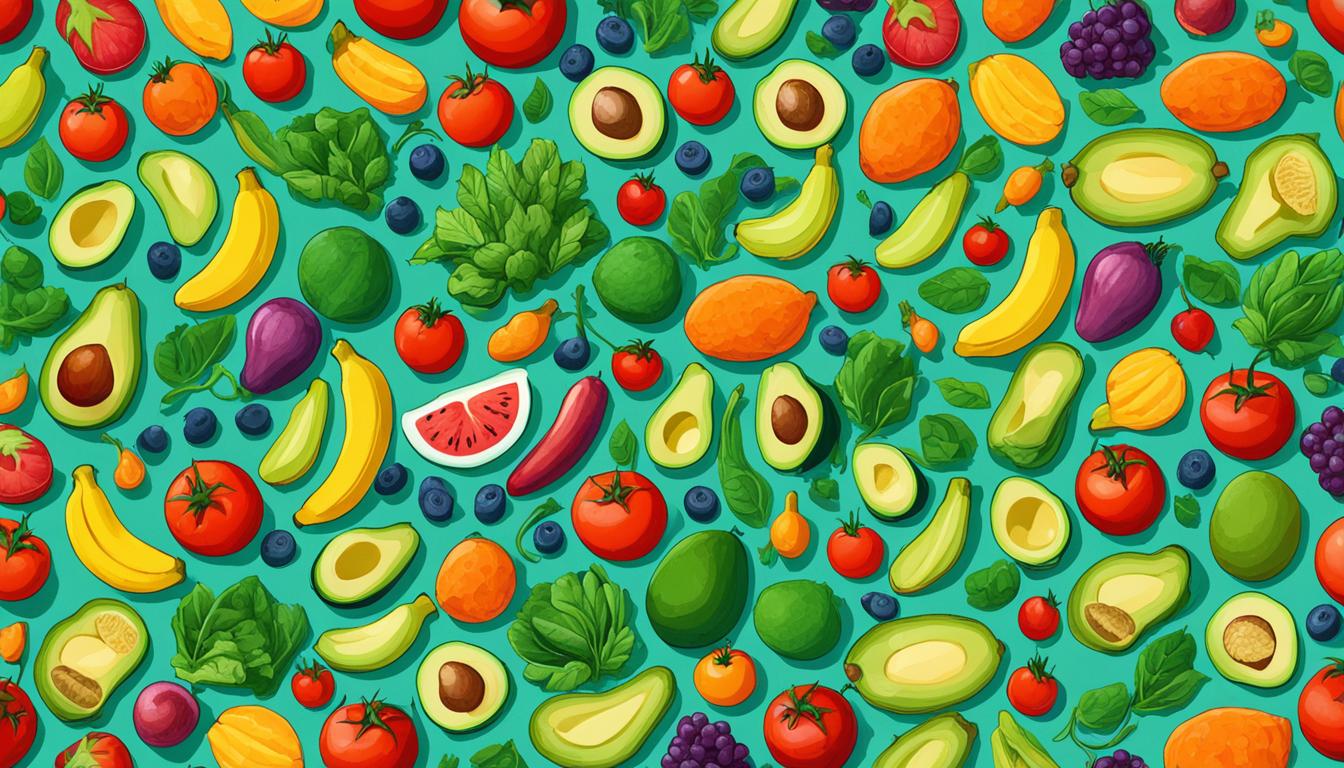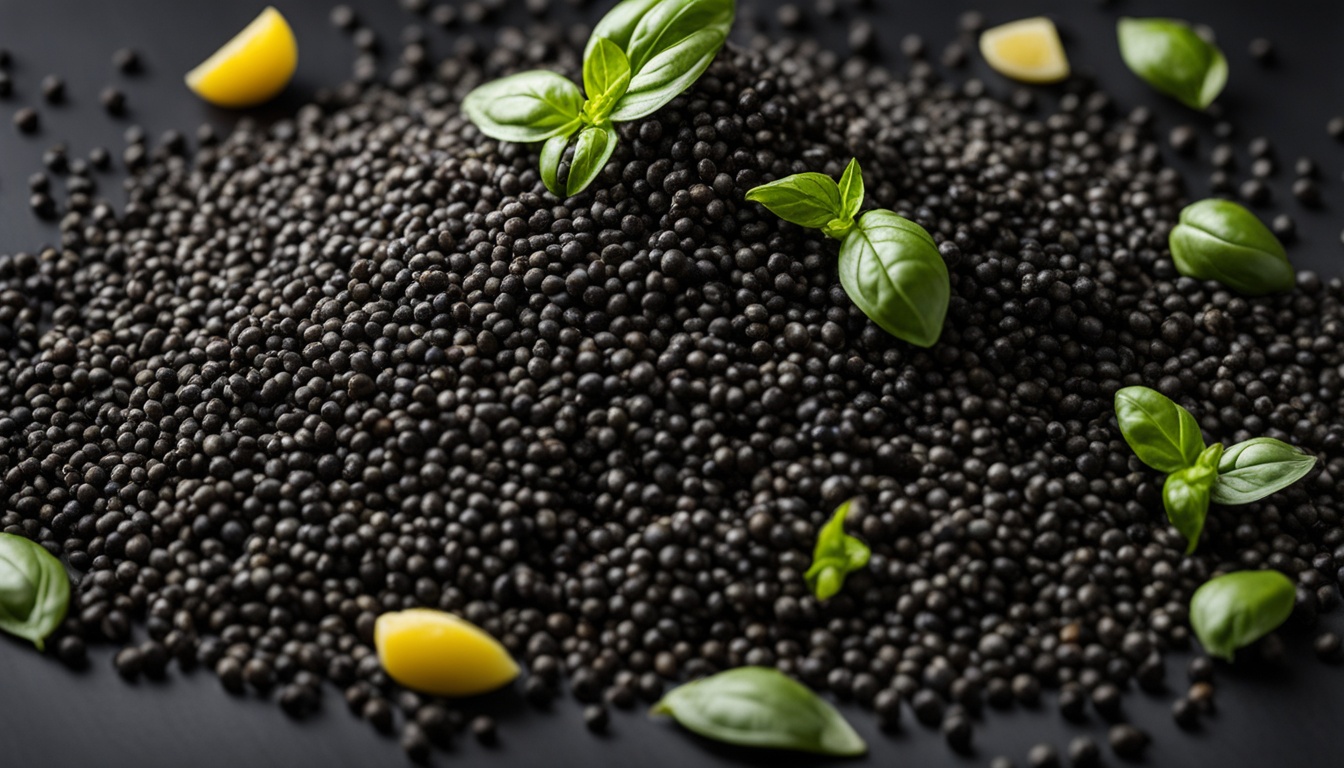An average serving of sliced cucumbers, about one cup or 104 grams, gives you just 16 calories. This makes cucumbers a top pick for staying hydrated and healthy. They are part of the gourd family and stand out for their pleasing taste and crunch. Plus, cucumbers are full of nutrients.
Since cucumbers are mostly water, they keep you hydrated. They’re also very low in calories, with just 16 in a cup. This veggie is packed with important vitamins and minerals, such as vitamin K, vitamin C, potassium, and magnesium. They’re loaded with antioxidants too, which fight off inflammation and stress in your body.
Key Takeaways
- Cucumbers are composed of 95% water, making them a hydrating and refreshing food.
- Cucumbers are low in calories, with only 16 calories per cup of sliced cucumbers.
- Cucumbers are a good source of essential vitamins and minerals, including vitamin K, vitamin C, potassium, and magnesium.
- Cucumbers are rich in antioxidants like flavonoids and tannins, which can help reduce inflammation and oxidative stress.
- Persian cucumbers, a unique cultivar, are even higher in water content and lower in calories, making them an excellent low-calorie snack option.
The Gourd Family’s Hydrating Marvel
Cucumbers belong to a big family that includes melons, pumpkins, and squash. With over 900 different kinds, this plant group shows off amazing diversity in nature. Known as cucurbits, these plants have been grown by people for thousands of years, proving they are very important culturally and historically.
Cucumber’s Botanical Origins
Cucumbers originally come from southern Asia and have been grown for over 3,000 years. India played a big part in early farming of cucumbers. The cool thing about this plant family is that their fruits and veggies are low in calories but packed with vitamins, minerals, and fiber. This makes them great for your health.
Cultivating Cucumbers Worldwide
Today, cucumbers are grown in more than 117 countries. Big cucumber growers include China, Turkey, Russia, Ukraine, and Iran. The U.S. mostly gets its cucumbers from Canada and Mexico, where people love the “burpless” kinds that grow in greenhouses.
It’s not always easy to grow plants from the Cucurbitaceae family. It takes the right kind of soil, water, and attention to keep pests away. But, the hard work often pays off with lots of fresh cucumbers to enjoy.
Slicing and Pickling Varieties
Cucumbers come in two main types: slicing and pickling. Slicing cucumbers, great for salads and sandwiches, are 6-8 inches long. They have smooth skin with white spines. This group includes Dasher, Conquistador, and Slicemaster.
On the flip side, pickling cucumbers are smaller and have thicker skin. They are perfect for pickling. This group features Royal, Calypso, and Pioneer, among others.
Vining and Bush Cucumbers
Vining and bush cucumbers differ in how they grow. Vining cucumbers can spread along the ground or climb trellises. Bush cucumbers are more compact and fit well in containers. The type of cucumber plant affects where and how it is grown.
Unique Cucumber Cultivars
There are also unique cucumber cultivars like Armenian, lemon, and Persian cucumbers. Each has its own look, taste, and use in the kitchen.
cucumber nutrition facts
Cucumbers are known for being mostly water. They’re about 95% water. This makes them great for staying hydrated, especially when it’s hot out or after you exercise.
High Water Content
Their high water content makes cucumbers taste refreshing. It also helps to keep our bodies hydrated. With so much water, cucumbers are perfect for a healthy diet. They can help anyone trying to drink more water.
Vitamins and Minerals
Cucumbers offer more than just water. They’re packed with vital vitamins and minerals like vitamin K, vitamin C, potassium, and magnesium. These nutrients are key for things like blood clotting, keeping your immune system strong, and normal body functions.
Antioxidants and Flavonoids
Cucumbers have antioxidants that fight off harmful substances in the body. These include flavonoids and tannins. They can help lower oxidative stress and inflammation. This might reduce the risk of several long-term illnesses.
| Nutrient | Amount per Serving |
|---|---|
| Calories | 8 (in a 1/2 cup serving) |
| Carbohydrates | 1.9g |
| Protein | 0.3g |
| Fiber | 0.3g |
| Vitamin K | 8.5mcg |
| Vitamin C | 1.5mg |
| Potassium | 76.4mg |
| Magnesium | 9% DV |
Hydration and Weight Management
Cucumbers are great for staying hydrated and managing weight. They are mostly water and very low in calories. A cup of sliced cucumbers has only 16 calories. So, they’re a perfect snack or addition to meals. This helps feel full, cutting down on how much we eat and aiding cucumber weight loss.
Low-Calorie Refreshment
Cucumbers are super low in calories, with nearly no fat. They’re great for managing weight and staying satisfied. This is because they are made up mostly of water.
Fiber for Satiety
Besides being water-rich, cucumbers have a good amount of fiber. This fiber is good for staying full and promoting healthy digestion. Feeling full helps with managing weight and staying on track.
Anti-Inflammatory Properties
Cucumbers help fight inflammation because they’re full of important antioxidants like flavonoids and tannins. These substances deactivate bad free radicals, which lessens oxidative stress. This is shown by research finding that cucumber extracts lower inflammatory risks and boost nitric oxide, key for blood flow regulation and cutting down inflammation.
Oxidative Stress Reduction
Eating cucumbers can lower oxidative stress and in turn, might prevent chronic diseases like heart problems, cancer, and autoimmune issues. The antioxidants in cucumbers are crucial for fighting the negative effects of free radicals, associated with these severe health problems.
Chronic Disease Prevention
Cucumbers’ strong anti-inflammatory and antioxidant abilities are great for a healthy diet. Adding cucumbers to what you eat might help ease inflammation and oxidative stress. This could play a part in preventing chronic diseases that start with these key issues.
Digestive Health Benefits
Cucumbers provide about 1 gram of fiber per cup when sliced. This cucumber fiber is good for keeping your cucumber digestive health in great shape. It helps with regular bowel movements and stops constipation, ensuring cucumber regularity.
Furthermore, it feeds the good bacteria in your gut, making your cucumber gut bacteria healthier. This means cucumbers are a smart choice for a balanced diet.
Fiber for Regularity
Cucumbers are great for digestion thanks to their fiber. They help you stay regular and avoid constipation. Their high water content supports this digestive benefit too.
Gut Bacteria Balance
The fiber in cucumbers also helps your gut have good bacteria. This keeps your cucumber gut microbiome healthy. Cucumbers are key in looking after your digestive system overall.
Incorporating Cucumbers into Your Diet
Cucumbers are great for many dishes and snacks. A simple way to eat them is by slicing them up. Enjoy these slices for refreshment. They make a food cucumber snack.
Cucumbers boost the taste of cucumber salads and sides. They add crunch and a cool taste. Mix them with other veggies, herbs, and dressings for nutritious salads.
They also work well in cucumber sandwiches and cucumber wraps. This adds both moisture and crunch. Cucumbers can be the healthy star in any meal, from snacks to salads or sandwiches.
| Cucumber Snacks | Cucumber Salads and Sides | Cucumber in Sandwiches and Wraps |
|---|---|---|
| – Sliced cucumbers – Cucumber spears – Cucumber sticks with dip |
– Cucumber and tomato salad – Cucumber, feta, and mint salad – Cucumber, onion, and dill salad |
– Cucumber slices in sandwiches – Cucumber wraps with fillings – Cucumber ribbons in wraps |
Cardiovascular Support
Cucumbers help keep your heart strong. Studies show that cucumber seeds lower blood pressure, triglycerides, and cholesterol. These are key for people with high heart disease risk.
The potassium in cucumbers fights the harm of sodium. This keeps your blood pressure under control. Also, antioxidants in cucumbers fight inflammation and stress, linked to heart problems.
Adding cucumbers to your meals can help your heart work better. So, they are great for your heart and overall health.
Potential Anti-Cancer Properties
Cucumbers not only taste great but may also help fight cancer. They contain cucurbitacin C, a compound proven to make cancer cells die. This is called apoptosis. It could slow down or stop certain cancers from growing and spreading.
Also, the antioxidant compounds in cucumbers fight cancer. Antioxidants like flavonoids and tannins block free radicals. This helps reduce stress in our cells, making cancer less likely to develop. Including cucumbers in your diet might help prevent some cancers. More studies will tell us for sure.
Cucurbitacin C and Apoptosis
Cucurbitacin C in cucumbers can make cancer cells die. This process is called apoptosis. Studies show it might stop certain cancers from getting worse.
Antioxidant Cancer-Fighting Potential
Cucumbers’ antioxidants help fight cancer too. Flavonoids and tannins can stop free radicals. They lower oxidative stress, a cancer trigger. Eating cucumbers could help against some cancers.
Safety and Precautions
Cucumbers are usually safe for most people. But, some might have minor issues like bloating or gas because of their high cucumber fiber content. Remember to eat them in moderation and watch out for your own body’s reactions.
If you have certain health issues like diabetes or kidney problems, be careful with how many cucumbers you eat. This is because of certain compounds in cucumbers and their effect on blood sugar or electrolyte levels. Always talk to a doctor before changing your diet, even with foods like cucumbers.
Conclusion
Cucumbers are not just cool and tasty; they are also packed with nutrition. They are mostly water, but also have key vitamins, minerals, antioxidants, and fiber. This makes them perfect for a healthy diet.
Cucumbers are great for staying hydrated and managing your weight. They are good for your heart and might even help fight inflammation and cancer. Their uses are many, showing how beneficial they are to eat.
Enjoy cucumbers fresh, add them to your salad or sandwich, or cook them in dishes. They are a great way to feel refreshed and be healthier. Adding cucumber to what you eat is very important. It boosts the nutrition you get and supports your well-being.
Looking for foods that are full of nutrients and taste good? Cucumbers are the way to go. They can make your daily meals more interesting and healthy. Choosing cucumbers means choosing a better path to health and balance.
FAQ
What are the nutritional benefits of cucumbers?
Where do cucumbers originate from?
What are the different types of cucumbers?
How do cucumbers support hydration and weight management?
What are the anti-inflammatory properties of cucumbers?
How do cucumbers support digestive health?
What are the potential cardiovascular benefits of cucumbers?
Do cucumbers have any potential anti-cancer properties?
Are there any safety concerns or precautions to consider when consuming cucumbers?
Source Links
- https://catchnutrition.com/nutrition-facts-of-cucumber/
- https://facts.net/lifestyle/food/10-persian-cucumber-nutrition-facts/
- https://www.beginwithinnutrition.com/healthy-living-journal/is-a-cucumber-a-fruit-or-vegetable/
- https://cultivar-newsletter.com.au/cucurbitaceae-chronicles-unravelling-the-diversity-of-cucumbers-squashes-and-pumpkins/
- https://facts.net/cucumber-facts/
- https://english.newstracklive.com/news/green-cucumber-keeps-you-away-from-these-diseases-sc53-nu371-ta371-1304591-1.html
- https://www.livescience.com/51000-cucumber-nutrition.html
- https://www.ndsu.edu/agriculture/extension/publications/field-fork-cucumbers
- https://www.verywellfit.com/cucumber-nutrition-facts-calories-and-health-benefits-4118563
- https://www.webmd.com/food-recipes/cucumber-health-benefits
- https://www.healthline.com/nutrition/7-health-benefits-of-cucumber
- https://www.medicalnewstoday.com/articles/323694
- https://www.medicalnewstoday.com/articles/283006
- https://health.clevelandclinic.org/benefits-of-cucumbers
- https://www.webmd.com/diet/health-benefits-cucumber
- https://catchnutrition.com/nutrition-facts-on-cucumber/
- https://www.ncbi.nlm.nih.gov/pmc/articles/PMC9386276/
- https://www.ncbi.nlm.nih.gov/pmc/articles/PMC8879703/
- https://www.healthline.com/health/is-cucumber-good-for-diabetes
- https://discover.texasrealfood.com/safe-bites/is-it-safe-to-eat-raw-cucumber
- https://www.ncbi.nlm.nih.gov/pmc/articles/PMC9778379/
- https://www.carehospitals.com/raipur/blog-detail/dietetics-and-nutrition/health-benefits-of-cucumber




